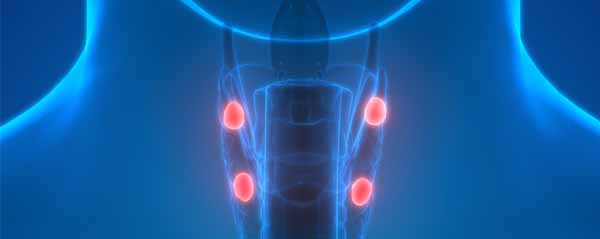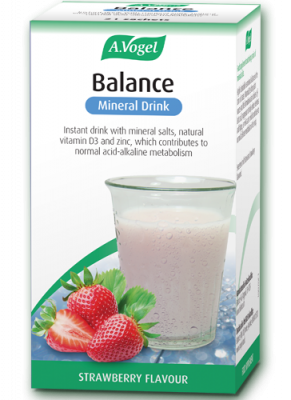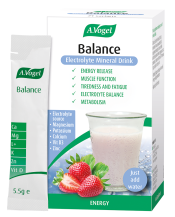How does vitamin D act as a hormone?
Vitamin D is best known as a nutrient; however, what most people don’t know is that vitamin D is also considered to be a pro-hormone which means that your body can convert it into a hormone. Your body can’t produce vitamin D on its own, though; your primary source of vitamin D is always going to be sunlight. When your skin is exposed to sunlight, a chemical reaction takes place which produces colecalciferol or vitamin D. This is then converted into another chemical by your liver before finally being processed by your kidneys to produce calcitriol, a steroid hormone.
So, what does this hormone actually do within the body? Well, vitamin D naturally works to regulate your blood levels of calcium by supporting your body’s absorption of this nutrient, thus keeping your bones nice and healthy. Calcitriol, though, has also been linked to hyperparathyroidism, which can occur when your parathyroid glands start to release too much of the parathyroid hormone (PTH) which can lead to unpleasant symptoms such as constipation, abdominal cramps and poor concentration.
It is believed that this active form of vitamin D can play a role here because of how it interacts with the parathyroid hormones.
How does vitamin D affect the parathyroid?

Okay, before I start to explain how vitamin D influences the parathyroid, let’s make one distinction. Your parathyroid is distinct from your actual thyroid gland. Instead, the parathyroid refers to four small glands that are located in your neck, and the primary function of these glands is to regulate your levels of calcium. It does this by releasing the parathyroid hormone (PTH) when your calcium levels are low in order to leach the mineral from other areas of your body, such as your bones, plus it influences how your kidneys excrete and filter this nutrient.
Vitamin D comes into the picture as PTH can encourage the activation of vitamin D. This makes a lot of sense as, if your calcium levels are low, you’re going to want vitamin D on hand to help promote its absorption. The downside of this, though, is that, when your levels of vitamin D are low, it can make your body less sensitive to PTH and, just as with insulin and high blood glucose levels, your parathyroid will try to solve this by releasing more and more PTH.
This then leads into the aforementioned hyperparathyroidism which, in addition to some of the symptoms I’ve already mentioned, can affect your bones as it will try to steal more and more calcium from your bones and secrete it into your bloodstream. These high levels of blood calcium can then sometimes lead to the development of kidney stones and other health concerns!
Does vitamin D affect testosterone?

So, vitamin D can impact your parathyroid hormones, but what about a hormone that’s slightly better known, like testosterone? Well, as it turns out, studies have found that an adequate level of vitamin D is actually pretty important for regulating this crucial sex hormone.
This is because vitamin D deficiencies have been linked to lower levels of testosterone in men. In one study, 65 participants were organised into two groups. The first group was required to take a high strength vitamin D supplement every day, over the course of a year, compared to the control group which did not engage in this practice. At the end of the trial, the vitamin D group found that their testosterone levels had increased by 20%.1
This doesn’t mean that you should go rushing to your nearest health food shop for a high-dose vitamin D supplement, though! It’s important to note that supplementation may only be necessary if you are already deficient in this nutrient. If you are not, overloading your body excess with vitamin D could actually do more harm than good.
Can vitamin D impact female hormones?

Okay, so I’ve explained how low levels of vitamin D could be linked to lower levels of testosterone, but what about female sex hormones like oestrogen and progesterone? Well, according to one recent study, high doses of vitamin D could actually lower your levels of these hormones!
The trial in question actually tested women in different seasons – some participants were monitored during summer and others were observed during the winter months. These women were all given an extremely high dose of vitamin D (24,000 IU per week!) and it was found that this supplement was capable of lowering their progesterone levels by 10% and their oestrogen levels by 3%.2
Now, if you’re going through the menopause (a period typically characterised by low oestrogen and progesterone levels), then this might sound quite alarming! Please bear in mind, though, that this was an exceptionally high dose – on average, the daily recommendation for vitamin D generally sits at 400-600IU a day.
It’s also worth noting that our Menopause Expert Eileen extols the virtues of vitamin D for menopause symptoms such as joint pain or poor immune function. Plus, if you do turn your back on vitamin D, symptoms of a deficiency will only aggravate any pre-existing menopause symptoms like fatigue and create a whole new list of problems.
Does vitamin D increase dopamine?

In her blog, ‘Can vitamin D help SAD?’, our Mood Advisor Marianna examines how vitamin D could potentially impact our mood. There, she mentions the connection between vitamin D and important hormones, such as dopamine and serotonin, which can regulate your mood. This evidence is in part derived from an animal-based trial wherein it was found that vitamin D supplementation was capable of boosting dopamine levels in vitamin D deficient rats.3
Just because this trial found some success with animals, this does not mean that testing on humans will have corresponding results. However, low levels of vitamin D are often associated with problems like low mood and there are vitamin D receptors in the same areas of the brain usually associated with depression. It’s also worth mentioning here that vitamin D is thought to be able to activate the synthesis of serotonin, a neurotransmitter and hormone that, similar to dopamine, can help to improve your mood.4
How do I get more vitamin D?
So, as you can see, vitamin D is definitely linked to quite a few hormonal issues throughout the body! Beyond this, though, the pro-hormone can have a number of positive health impacts which is why it’s so important to stay on top of our intake. Getting plenty of exposure to sunlight is our primary way of producing the nutrient but, if you live somewhere like the UK, this exposure is not always guaranteed, especially during the darker winter months.
Of course, you can still source vitamin D from your diet, but these forms aren’t always as well absorbed and can present problems in the case of dietary restrictions such as veganism or vegetarianism. This is possibly why vitamin D supplements have sky-rocketed in popularity, although the dose offered in most products is far, far too high!
Ideally, if you are supplementing with vitamin D, you don’t want to be getting any more than 10-20mcg a day. That’s why I try to recommend a gentle vitamin D supplement, one that your body is going to be able to absorb without too much trouble, so nothing is wasted. This is why I’m particularly fond of our Balance Mineral Drink – enriched with a sensible 5mcg dose of vitamin D, this refreshing strawberry-flavoured drink also contains other nourishing nutrients, such as magnesium, calcium, potassium and zinc to help give your energy levels a nice little lift!
My Top Tip: Mix one sachet of our Balance Mineral Drink with a glass of water or mingle a smoothie to produce a pleasant-tasting strawberry-flavoured drink that's ideal for fighting fatigue. Mix one sachet of our Balance Mineral Drink with a glass of water or mingle a smoothie to produce a pleasant-tasting strawberry-flavoured drink that's ideal for fighting fatigue.
|
1https://www.ncbi.nlm.nih.gov/pubmed/21154195
2https://www.ncbi.nlm.nih.gov/pubmed/19916051





 Looking for our products in a store near you?
Looking for our products in a store near you?

